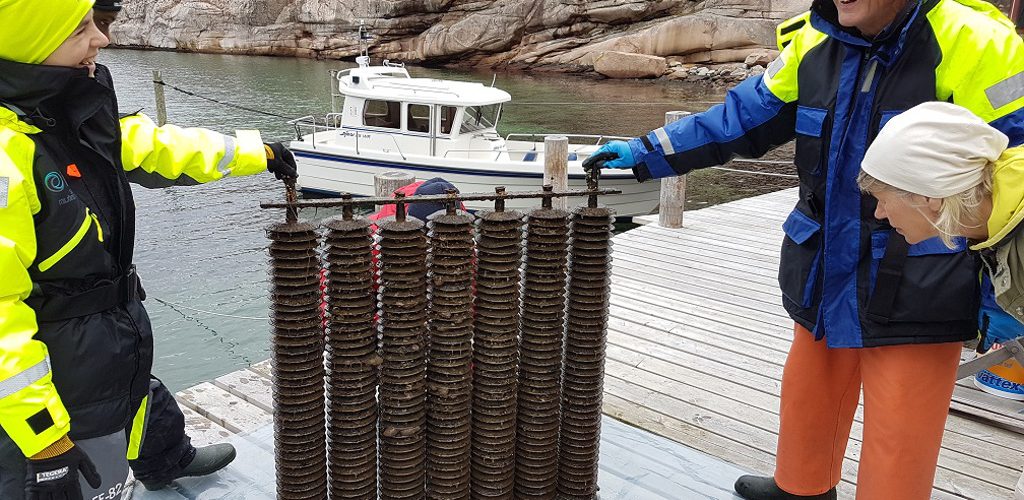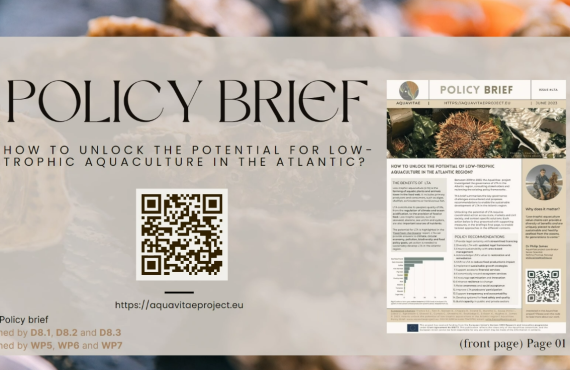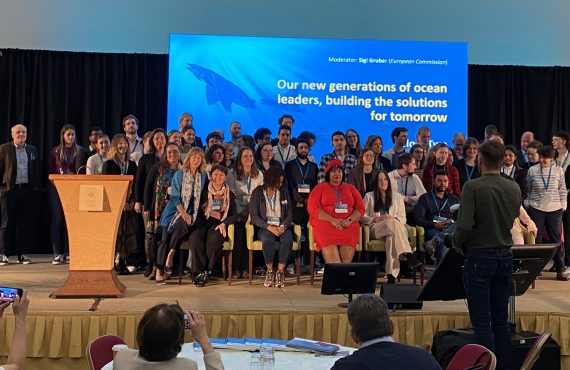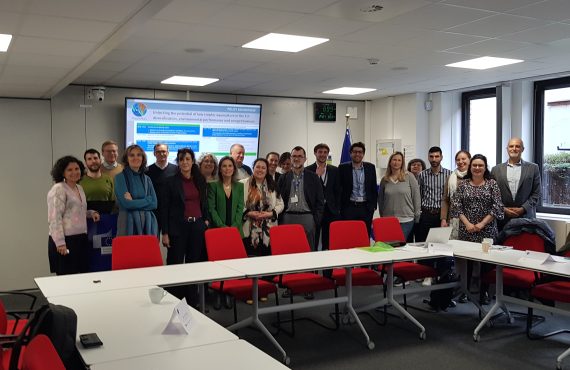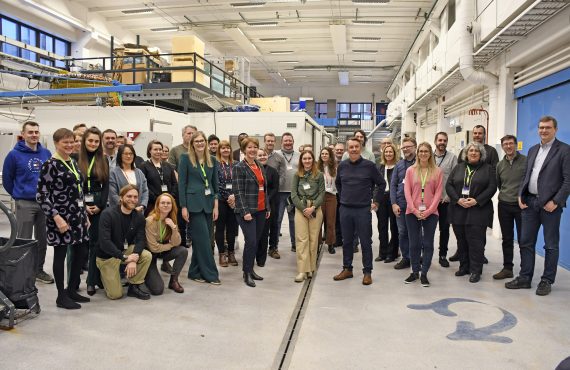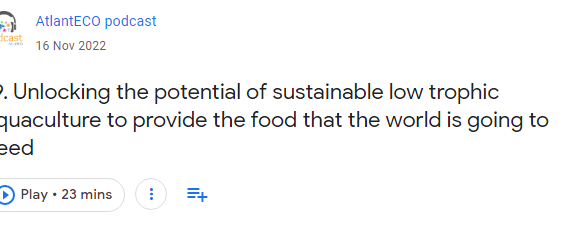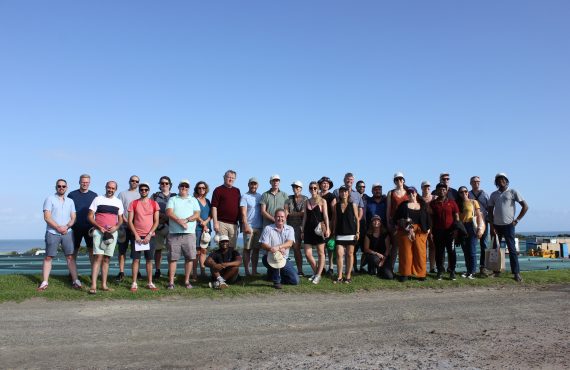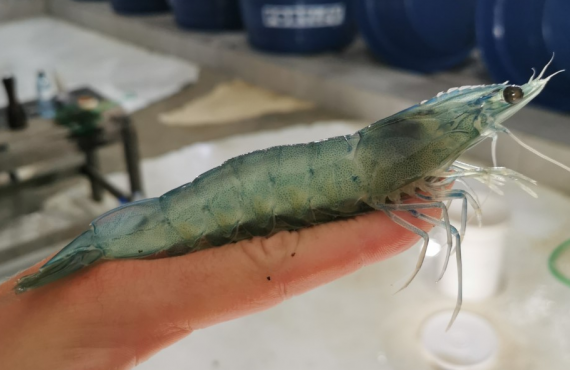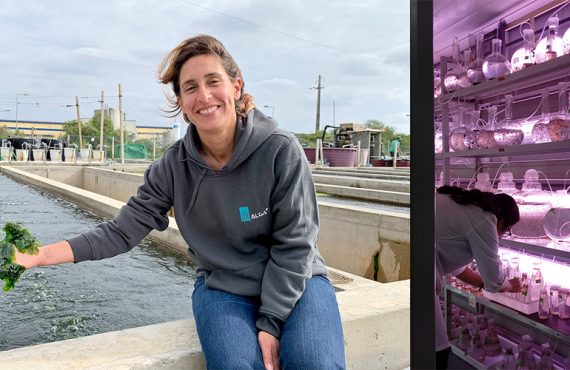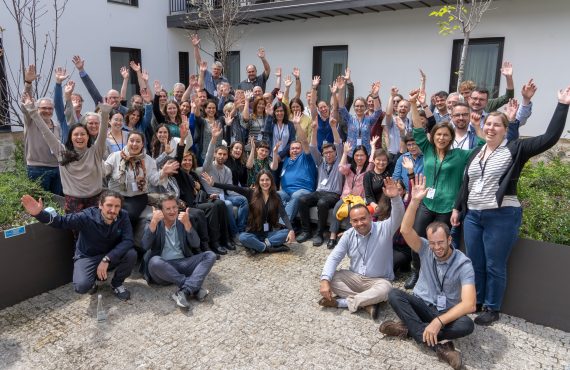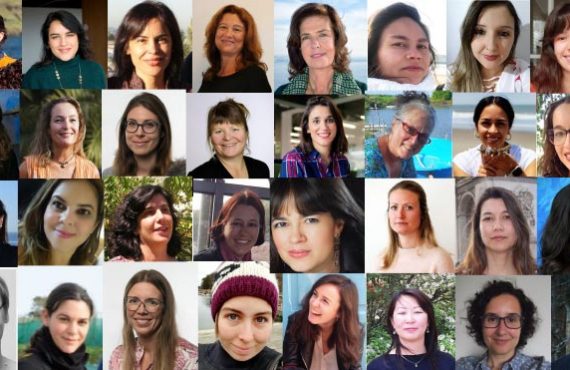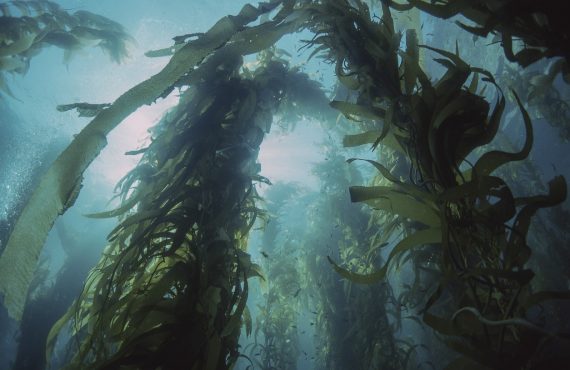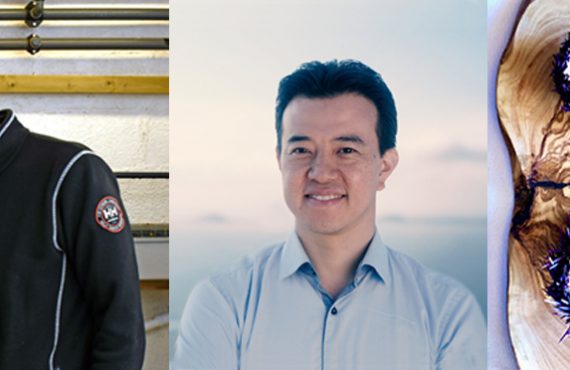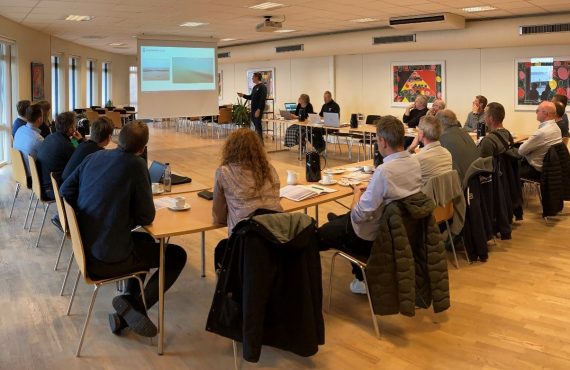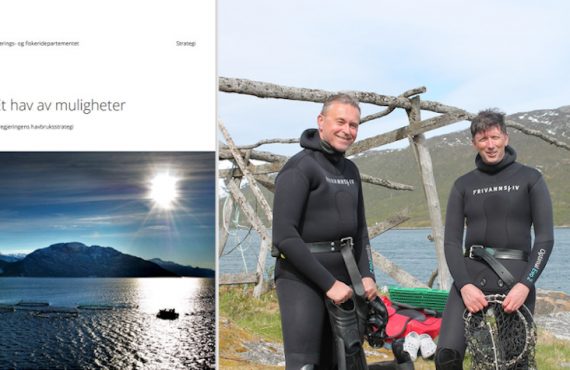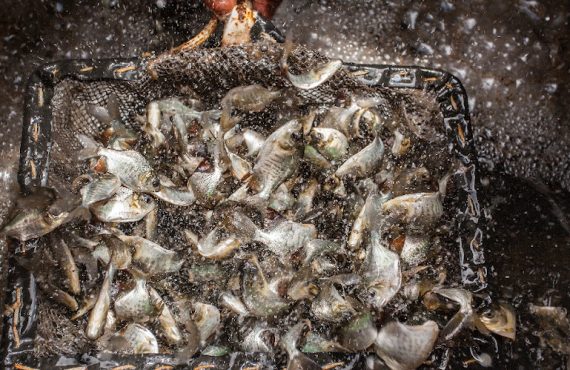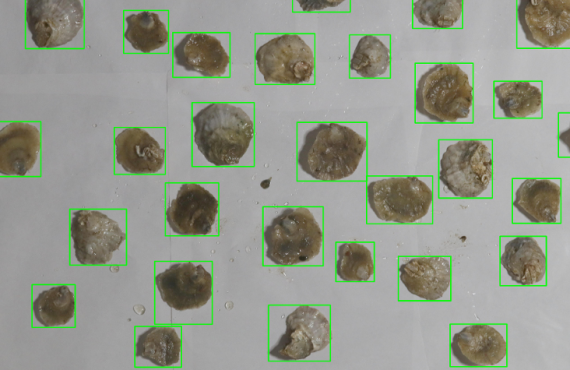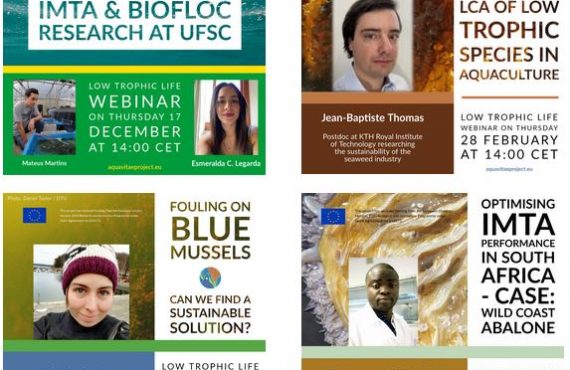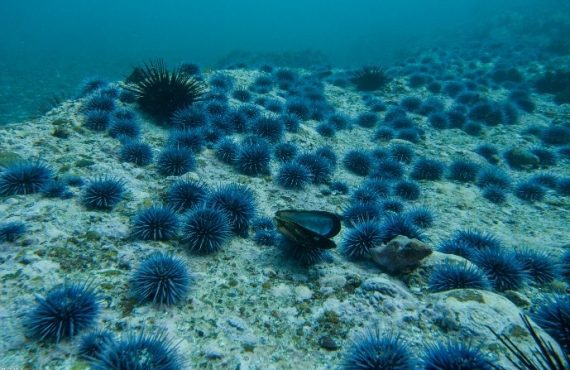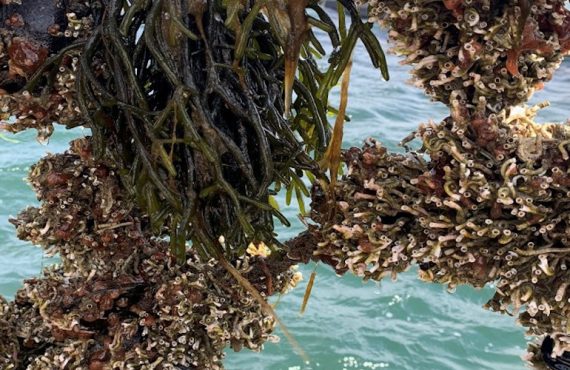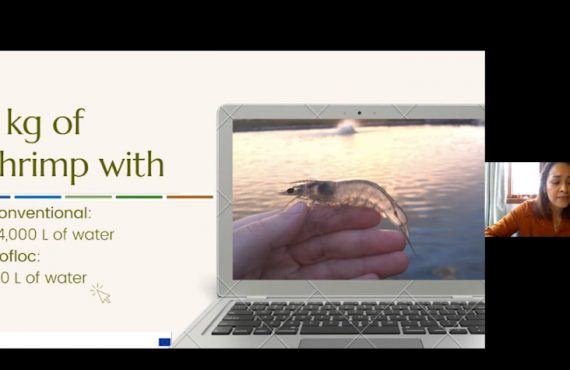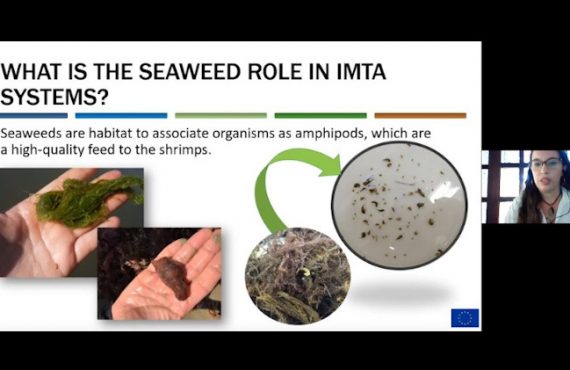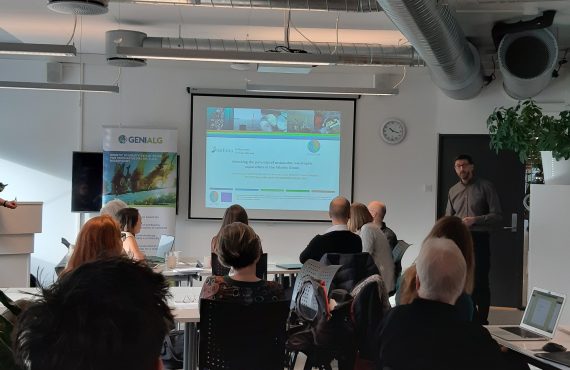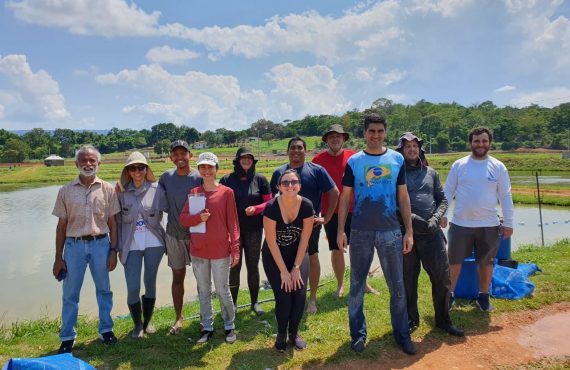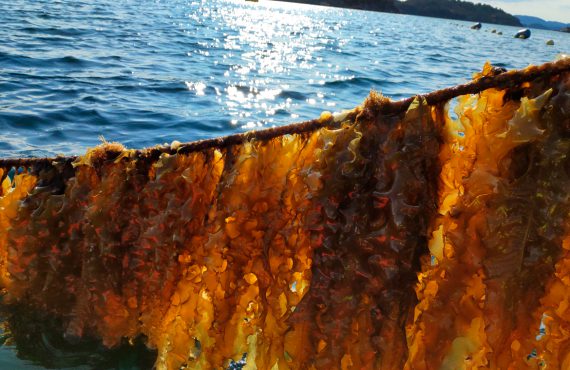Field work by IVL team focused on native oyster production. Photo: Åsa Strand.
Seafood is the future. It is nutritious and healthy and an industry that has enormous growth potential. The new initiative Blue Food – Center for future seafood will make Sweden a leading producer of sustainable seafood, through a multi-disciplinary partnership including IVL.
“Marine seafood products like mussels, oysters and seaweeds are among the most sustainable and healthy food you can eat. To invest in aquaculture of these and other low trophic species can enhance the sustainability of our food consumption and may reduce our climate impact from food production significantly”, says Åsa Strand, member of the Blue Food steering committee and researcher at IVL Swedish Environmental Institute, AquaVitae partner.
This is the largest investment in seafood in Sweden with a funding of 48 million SEK (approximately 4.7 million Euros) from the Swedish research council for sustainable development. The vision is for the industry to grow ten times larger than today and for the proportion of Swedish-produced seafood to double.
“Today we import 72 percent of all seafood eaten in Sweden. When it comes to farmed fish, that number is 90 percent. This is not sustainable. We must take responsibility and increase Sweden’s capacity. This will also lead to increased local production and more jobs in coastal and rural communities”, says professor Kristina Sundell at Gothenburg University, director of the new centre.
The Blue Food initiative coincides with the United Nations Decade of Ocean Science for Sustainable Development, which promotes sustainable production of seafood as a way to increase food production in the world without using additional arable land, water, or fertilizer. The investment in Swedish aquaculture is a step in that direction.
“I am very happy that we have been able to carry out this call within the national food program. A good food supply is a matter for the whole society, as is climate-smart food production, says Forma’s Director-General Ingrid Peterson in a press release.
Aquaculture development
The expansion of seafood production in Sweden will partly be achieved through research aimed to address the barriers facing aquaculture of fish, shellfish, algae and other edible species, and by making better use of underutilized species, the wild-caught fish that are caught, as well as processing side streams. This is in line with activities in AquaVitae, in which IVL leads a case study to enhance oyster production round the Atlantic, as well as a work package aimed to improve overall sustainability and resilience of low trophic aquaculture. More specifically, IVLs activities in the seafood centre will expand AquaVitae’s activities related to oyster seed production and assessment of sustainability and risks related to the whole seafood chain.
“I look forward to expand our activities in AquaVitae and integrating our results from AquaVitae into the new centre formation. This will enhance the impact generated from both AquaVitae and Blue food activities through synergies and knowledge transfer between projects”, says Åsa Strand, IVL.
Climate-smart food of the future
Moreover, the investment is partly about increasing consumers’ opportunity to choose healthy and Swedish-produced seafood.
“We see a trend where more people choose to eat more sustainably. Eating more plant-based is good, but the pace of innovation needs to increase and more consumers need to know that seafood is also a sustainable, healthy and protein-rich choice that is good for both the planet and the body”, says Anders Högberg, research manager at Orkla and industry partner in Blue food.
This is another topic addressed specifically for low trophic species in AquaVitae, where marked demands and consumer safety are included as important aspects related to sustainable expansion of low trophic aquaculture around the Atlantic.
National support
The centre is a national collaboration between research and innovation actors, regions, municipalities, organisations, and forty companies from all over Sweden.
“The time is right for this kind of investment. The collaboration within Kristineberg Center made it possible for us to come together and take advantage of the great interest that exists in both the public and business sector,” says Fredrik Gröndahl, associate professor at the Department of Sustainable Development Environmental Science and Engineering at KTH Royal Institute of Technology, the main applicant with a leading role in the centre.
Partnership: Blue food – Center for the seafood of the future
Partners in the centre are KTH Royal Institute of Technology, University of Gothenburg, Chalmers University of Technology, Swedish University of Agricultural Sciences, RISE Research Institutes of Sweden, Uppsala University, IVL Swedish Environmental Institute, Innovatum Science Park, Orkla, Region Västra Götaland, Region Stockholm and more.



